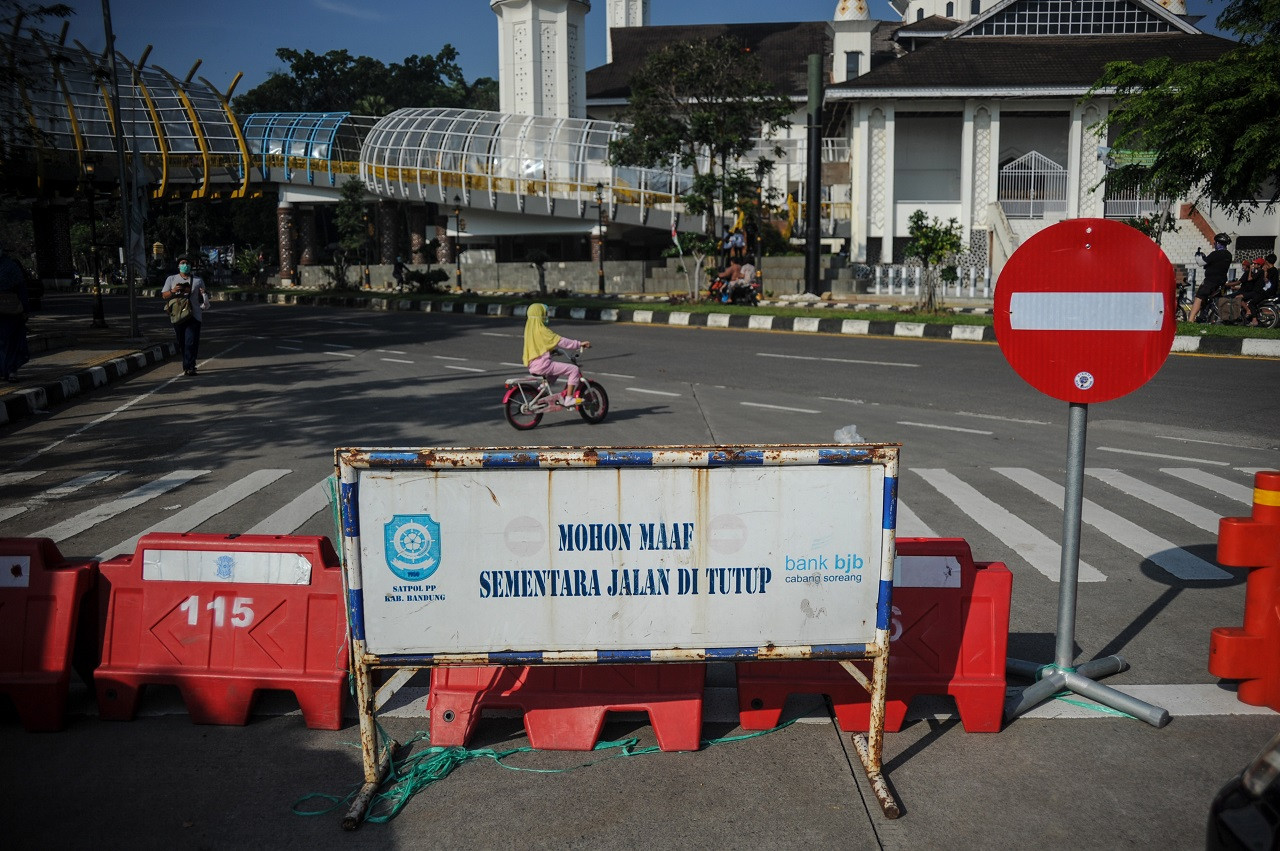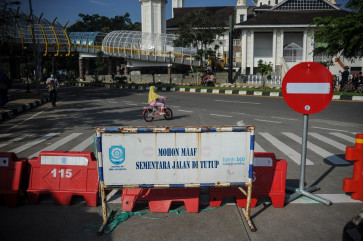Popular Reads
Top Results
Can't find what you're looking for?
View all search resultsPopular Reads
Top Results
Can't find what you're looking for?
View all search resultsPath of the pandemic and financial sector policies
The government should not hesitate to tighten restrictions whenever cases surge too fast and medical capacity is strained.
Change text size
Gift Premium Articles
to Anyone
 A child rides a bicycle on the closed Jl. Al-Fathu in Soreang, Bandung regency, West Java on July 4, 2021. The Bandung regency administration closed several roads to limit public mobility during the emergency public activity restrictions (PPKM Darurat) period from July 3 to 20. (Antara/Raisan Al Farisi)
A child rides a bicycle on the closed Jl. Al-Fathu in Soreang, Bandung regency, West Java on July 4, 2021. The Bandung regency administration closed several roads to limit public mobility during the emergency public activity restrictions (PPKM Darurat) period from July 3 to 20. (Antara/Raisan Al Farisi)
“The path of the economy continues to depend on the course of the virus.” This opening statement in the press release after the United States Federal Open Market Committee meeting recently reiterated that the pandemic will determine the economic recovery.
Current divergence in global economic recovery is also driven by differences in the pandemic situation between countries. Advanced economies tend to recover faster than emerging markets as they have a higher vaccination rate, and then open up their economy.
The US vaccination rate is lagging compared to other advanced economies even though the US began jabbing much earlier and has ample vaccine stocks. Until recently, only 55 percent of the US population had been fully vaccinated (for comparison, the rates of the United Kingdom and Singapore were 66 and 79 percent respectively). As the daily vaccination rate is under 500,000, inoculation seems to be stalling and the course of the pandemic in the US is difficult to predict, as the more infectious Delta variant has wildly spread.
This pandemic uncertainty will constrain the Fed to begin unwinding its monetary policy, even inflation rose well above the Fed target. The market currently expects the Fed to begin to hike its policy rate at the end of 2022. Therefore, room for developing countries to continue their unconventional monetary stimulus to support recovery will be available until next year.
We should use this one-year window to sort out the transition to the new normal and open up our economy. More and more countries are shifting to a living with the virus strategy, meaning that we will treat COVID-19 like influenza. To achieve that, there are factors that need to be taken into consideration.
First, vaccination is still the most effective tool to fight the pandemic and before opening up, high risk groups and the majority of the population should have been fully vaccinated. Vaccine efficacy will also determine the success of opening. Next year, global vaccine supply will become abundant and we can depend more on vaccines that have passed more transparent and rigorous clinical trials.
The UK experience shows that safe opening is possible if we can break the correlation between cases and hospitalizations/deaths. After vaccinating high-risk groups, the UK lifted almost all restrictions in July 2021 even in the midst of a Delta outbreak. While cases have been increasing sharply, hospitals are not overburdened and deaths have been kept low. Therefore, the UK has been able to continue lifting restrictions.

















